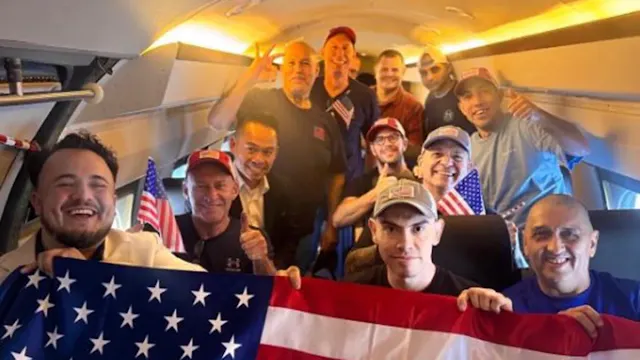WASHINGTON, D.C. – The United States has successfully completed a significant prisoner exchange with Venezuela, securing the freedom of ten American citizens who had been detained in the South American nation, some for years. The deal marks a pivotal moment in the complex and often fraught relationship between the two countries and was the result of extensive and quiet diplomatic negotiations.
The exchange, confirmed by U.S. officials on Saturday, saw the release of a group of Americans, including several individuals designated as "wrongfully detained" by the U.S. State Department. While the identities of all ten citizens have not been fully disclosed to protect their privacy, the group is understood to include individuals who were arrested under various circumstances, with their detentions often viewed by Washington as politically motivated.
In return for the release of the Americans, the United States agreed to free Alex Saab, a close ally and financier of Venezuelan President Nicolás Maduro. Saab was arrested in 2020 and later extradited to the U.S. to face charges of money laundering. His release has been a long-standing demand of the Maduro government, which considers him a Venezuelan diplomat who was unlawfully detained.
The successful negotiation represents a rare breakthrough in U.S.-Venezuela relations, which have been severely strained for years. The Biden administration has carefully balanced its stance, maintaining pressure on the Maduro regime over human rights and democratic backsliding while also creating channels for crucial diplomatic engagement, particularly concerning the welfare of detained Americans.
A senior White House official commented on the exchange, stating, "President Biden's commitment to bringing home every American held hostage or wrongfully detained abroad is unwavering. We are relieved that these ten individuals will soon be reunited with their families, who have been tireless advocates for their release."
The deal is also seen in a broader diplomatic context. It follows a conditional agreement made last year in which the U.S. eased some oil sanctions on Venezuela after the Maduro government and opposition parties agreed to work towards fairer conditions for the upcoming 2024 presidential election. Observers suggest this prisoner swap could be another step in a carefully calibrated strategy by Washington to encourage further democratic reforms in Venezuela.
For the families of the released Americans, the news brings an end to a prolonged period of uncertainty and anguish. They are now expected to be transported back to the United States for medical evaluations and to be reunited with their loved ones.

